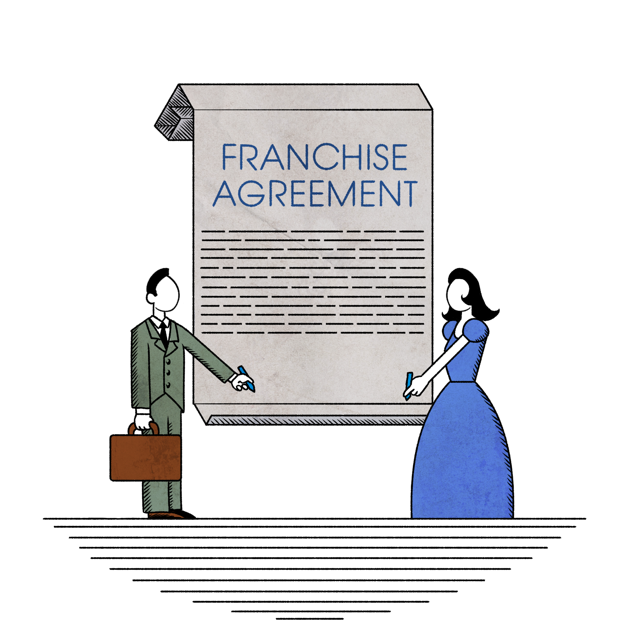Franchise Questions
Why does my spouse have to sign a personal guaranty?
What’s a “guaranty,” who is the “guarantee,” and why use a “spousal guaranty”?
A guaranty (also referred to as a personal guaranty) is a legal document that allows the franchisor (the “guarantee”) to reach the assets held by the owners of a franchisee entity (the “guarantor”) to pay for what is owed under the franchise agreement.
It’s common for franchisors to require a guaranty not only from the owner of the franchise but also from his or her spouse. The main motivation for a spousal guaranty is based on the treatment of assets of a married couple under state law. Generally, marital property is either owned by “Tenancy by the entirety” or “Community Property” and will depend on the state where the couple and property is located.
Tenancy by the Entirety
Tenancy by the entirety is the most common form of home and other asset ownership between spouses. It applies in Alaska (real estate only), Arkansas, Delaware, District of Columbia, Florida, Hawaii, Maryland, Massachusetts, Mississippi, Missouri, New Jersey, Oklahoma, Pennsylvania, Rhode Island, Tennessee, Vermont, Virginia, and Wyoming (and also in Illinois, Indiana, Kentucky, Michigan, New York, North Carolina, and Oregon for real estate only).
Under tenancy by the entirety, the creditors of only one spouse cannot collect from the other to pay a debt or collect on a judgment. Only creditors of the couple may reach jointly owned property.
Community Property
Community property ownership means that spouses legally share almost all assets and liabilities acquired during the marriage. This means that property belongs to both spouses regardless of how property is titled in these states. This also means that a creditor of one spouse may be able to collect from the non-liable spouse.
Community property states include Alaska, Arizona, California, Idaho, Louisiana, Nevada, New Mexico, Puerto Rico, Texas, Washington, and Wisconsin.

Why Use a Guaranty?
A spousal guarantee allows the franchisor to access marital assets such as bank accounts, investments, personal property and real estate and bind the franchisee’s spouse to the obligations under the franchise agreement. Think of it as collateral for a loan. This is especially significant in tenancy in the entirety states where a franchisor might be unable to reach certain assets. If the franchisee defaults on the financial obligations of the franchise agreement, a spousal guarantee “attaches” all marital assets to the franchise.
A spousal guarantee makes the status of the relationship irrelevant. For example, should a franchisee get a divorce, a spousal guaranty would survive the divorce, and a franchisor could still reach assets that were originally part of the marriage.
Finally, a spousal guaranty is protection against a situation where the franchisee is looking to hide assets or circumvent the franchise agreement by transferring assets to the spouse. A guaranty blocks this method of hiding assets if the franchisor becomes the franchisee’s creditor.
